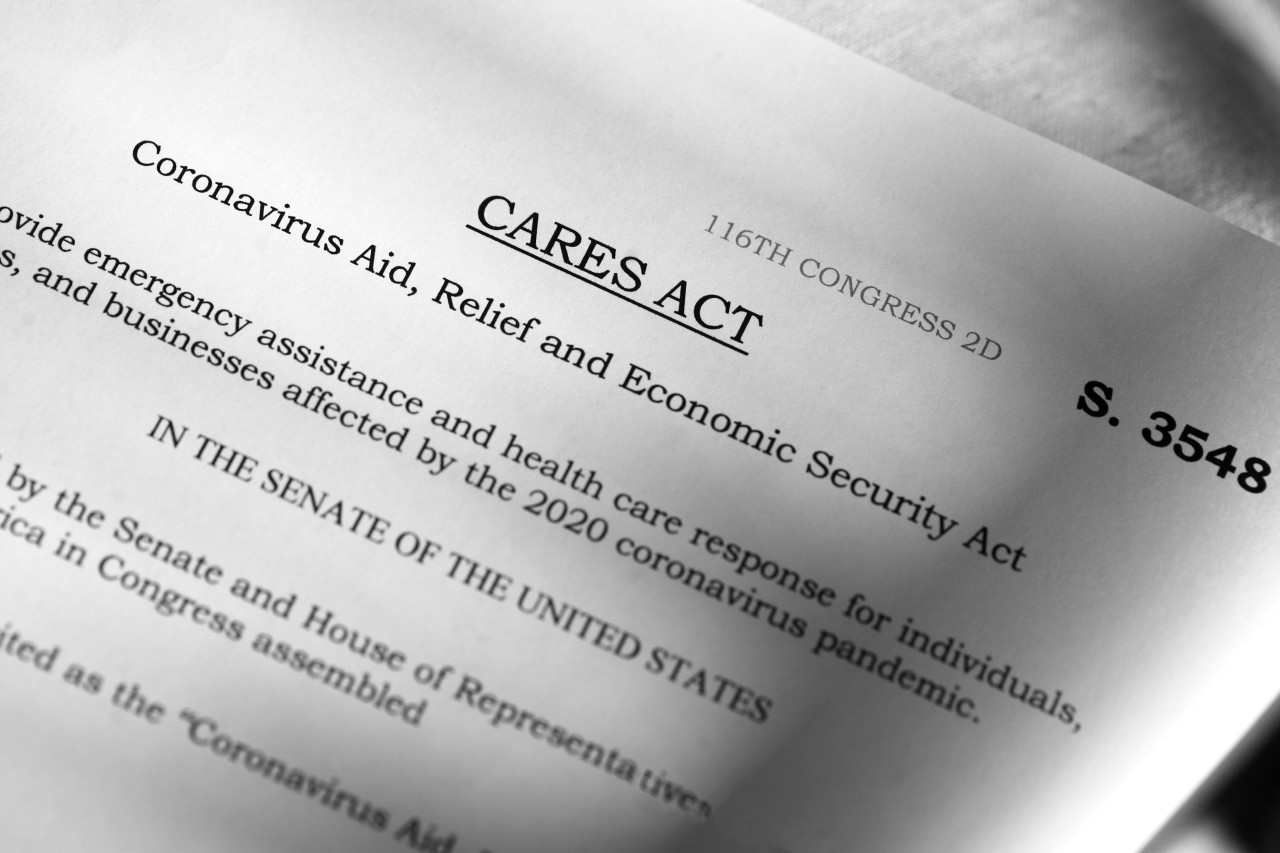
Photos of the 2020 Coronavirus Aid, Relief and Economic Security Act alos known as the CARES ACT. Photos are not of the actual bill but a simulation of the bill.
Article previously published by HouseLogic.com:
It’s a confusing time, but lenders are putting remedies, like forbearance, in place to help homeowners.
Mortgage lenders, and the federal agencies that regulate lenders, are putting coronavirus mortgage relief measures in place to ensure homeowners have options if they’re unable to make payments.
Your first stop in the face of financial hardship is your lender or bank.
Just keep in mind lenders are working to figure out and implement the new mortgage relief polices outlined by the regulatory agencies. So you might read one thing from the FHFA, a federal regulator, but your bank might be doing something else.
In addition, due to the number of homeowners affected by the pandemic, lenders are dealing with a crush of calls and online queries. Be patient, persistent, and prepared to spend time on hold.
Your Mortgage
Federally Backed Mortgages
If you have a mortgage backed by Federal Housing Administration (FHA), Veteran’s Administration (VA), United States Department of Agriculture (USDA), Fannie Mae, or Freddie Mac, your loan servicer must offer you deferred or reduced mortgage payment options – called forbearance — for up to six months. This means you don’t have to pay your mortgage and you won’t be charged late fees, penalties, or interest while you can’t pay.
Loan servicers for FHA, Freddie, and Fannie must provide an additional six months of forbearance if you request it.
Not sure who backs your own loan? Fannie Mae and Freddie Mac have loan look-up sites where you can find out who owns it, and how to get in touch with them.
In addition, here are direct links to some lenders and banks’ Covid-19 resources:
Call us for a free “Protect Your Investment Guide for At Risk Homeowners.
Foreclosure and Evictions
Federal officials have imposed a nationwide halt to foreclosures and evictions for more than 36 million Americans with home mortgages backed by the FHA, Fannie Mae, and Freddie Mac.
The moratorium only affects borrowers with mortgages backed by Fannie Mae, Freddie Mac, FHA, VA, and RHS (Rural Housing Service loans through the USDA). This doesn’t apply to the roughly 35% of mortgages held in bank portfolios and private label securities. But some individual lenders are offering relief.
Some cities, counties, and states, including Delaware, Indiana, Kansas, Louisiana, New Hampshire, North Carolina and Texas, have placed a moratorium on foreclosures. Check with your city, county, and state governments. Find state-by-state tallies online.
Housing Counselors
Another tool in your relief toolbox are housing counselors. Counselors can provide independent advice on buying a home, renting, defaults, foreclosures, and credit issues. The U.S. Department of Housing and Urban Development’s look-up tool lets you can find counselors in your state.
Your Credit
The CARES Act forbids lenders from dinging your credit score for missed payments on federally backed mortgages and student loans during your forbearance period. The federal government is also encouraging private lenders to suspend reporting late payments on eligible mortgages. The Consumer Financial Protection Bureau has more advice about protecting your credit.
To keep close tabs on your credit, you can now obtain a free credit report from each of the three credit bureaus, Experian, Equifax, and TransUnion, every week for the next year through April 20, 2020. The companies ratcheted up their once-a-year allowance to help consumers “protect their financial health during the sudden and unprecedented hardship caused by COVID-19.”
Get all three reports in one spot: annualcreditreport.com.
Your Student Loan
The CARES Act includes immediate relief for those who can’t make their monthly payments on federally held loans due to coronavirus. All loan payments (both principal and interest) are suspended through Sept. 30, 2020, with no penalty. You don’t need to apply for this program or contact your lender. It’s automatic.
If you keep making payments, they’ll be applied entirely toward the principal. These suspended payments will count towards any student loan forgiveness already in effect.
Here’s a list of servicers — and their phone numbers — for loans backed by the U.S. Department of Education.


